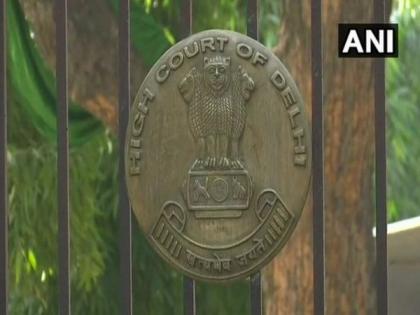Delhi HC refuses to vacate stay granted in matter related to promises of Delhi CM to pay rents of poor tenants
By ANI | Published: July 5, 2022 05:07 PM2022-07-05T17:07:13+5:302022-07-05T17:30:34+5:30
Delhi High Court on Tuesday refused to vacate the stay granted in an appeal moved by the Government of Delhi challenging the single bench order dated July 22, 2021, which had directed the state government to implement the promises made to pay rents of poor tenants by Chief Minister Arvind Kejriwal.

Delhi HC refuses to vacate stay granted in matter related to promises of Delhi CM to pay rents of poor tenants
Delhi High Court on Tuesday refused to vacate the stay granted in an appeal moved by the Government of Delhi challenging the single bench order dated July 22, 2021, which had directed the state government to implement the promises made to pay rents of poor tenants by Chief Minister Arvind Kejriwal.
Division Bench of Justice Satish Chandra Sharma and Justice Subramonium Prasad on Tuesday dismissed the application which requested Court to vacate the stay granted in the matter claiming the landlord is forcing tenants to pay all previous dues or vacate the premises.
The counsel appearing for tenants urged the court to issue direction for the formulation of a policy in this regard. The Court said, "can we force them to form a policy. There are several things said in the election mfesto, can we force them to do so?"
The Court also noted that the petitioner tenants had already moved and challenged the stay order in the Supreme Court which had dismissed it.
The Government of NCT Delhi in its plea had challenged the order passed by the bench of Justice Prathiba M Singh order stating Good Governance requires promises made to citizens that are not broken.
The single bench had opinioned that promise or assurance given by the Chief Minister of a state clearly amounts to an enforceable promise, the implementation of which ought to be considered by the Government. Good governance requires that promises made to citizens by those who govern are not broken, without valid and justifiable reasons.
The Bench of Justice Prathiba M Singh had pronounced a Judgement in petitions moved by four Daily wagers who claim to be tenants who were unable to pay their monthly rent. The fifth petitioner in the matter is stated to be a landlord who hasn't been able to receive the monthly rent from his tenant. Both sets of Petitioners sought recovery/payment/refund of the monthly rental amount, as per the promise made by the Delhi CM Arvind Kejriwal.
Petitioners had sought enforcement of the promise made by the Chief Minister of Delhi on March 29, 2020, in a press conference, in which he requested all landlords to postpone the demand/collection of rent from those tenants who are poor and poverty-stricken, in the wake of the COVID-19 pandemic. It is alleged by the petitioners that the CM, in the press conference, had made a clear promise that if any tenant is unable to pay the rent due to poverty, the
The government would pay his/her rent on their behalf. According to the Petitioners, solemn assurance was given that the Government would take care of the tenants.
The single bench while pronouncing the judgment begins it with the saying, "Promises are meant to be broken' which is well known in the social context. However, the law has evolved the doctrines of legitimate expectation and promissory estoppel to ensure that promises made by the Government, its officials, and other authorities are not broken and are, in fact, judicially enforceable, subject to certain conditions."
The bench had directed that the GNCTD would, having regard to the statement made by the CM on March 29, 2020, to landlords and tenants, take a decision as to the implementation of the same within a period of six weeks, the said decision would be taken, bearing in mind the larger interest of the persons to whom the benefits were intended to be extended in the said statement, as also any overriding public interest concerns.
( With inputs from ANI )
Disclaimer: This post has been auto-published from an agency feed without any modifications to the text and has not been reviewed by an editor
Open in app